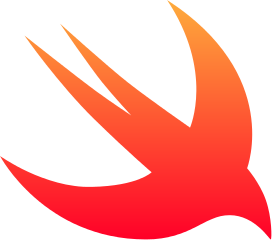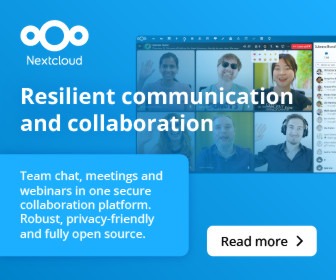Unless you’ve been incommunicado due to a stint in the Witness Protection Program, stranded on a deserted island, or sleeping under a rock — or possibly any combination thereof — you have already heard that Apple announced at its Worldwide Developers Conference this week that the kings of closed-source software based in Cupertino will open-source its programming language Swift.
 While there have been no injury reports yet from the multitudes simultaneously jumping on the Swift-as-open-source bandwagon — and no shortage of “Apple to tailor Swift to open source” headlines (can someone hand me an air-sickness bag?) — you’ll have to excuse me if I don’t share the rampant enthusiasm for a couple of reasons.
While there have been no injury reports yet from the multitudes simultaneously jumping on the Swift-as-open-source bandwagon — and no shortage of “Apple to tailor Swift to open source” headlines (can someone hand me an air-sickness bag?) — you’ll have to excuse me if I don’t share the rampant enthusiasm for a couple of reasons.
To be clear, like Microsoft’s foray into FOSS, Apple’s entry is a small step for FOSS, to paraphrase Neil Armstrong. It is hardly a giant leap for FOSSkind. Also, to be fair, Apple has dabbled in open source in its own way already, for example with OpenDarwin, which is available if you dig deep enough in the Apple website.
A couple of things need mentioning in the blinding lights of Apple’s announcement.
First, no open-source license has been established for Swift yet. Minor detail? Maybe. But months from now, when the Cupertino folks finally get around to it, it remains to be seen what they’ll choose, or whether they’ll write their own. To say I don’t have a lot of confidence in what Apple chooses as a license would be an understatement, and I’d welcome them to prove me wrong — to be frank, I’m not expecting GPLv2 or anything close, but I do expect them to treat the contributed code in the spirit open source software intends for it to be treated and distributed.
Also, to hear the high praise heaped on Apple from some sectors of the FOSS community, you’d think that Apple had opened the code to iTunes to FOSS developers.
It’s Swift. It’s an internal programming language that currently only benefits…Apple. Good for developers who want to pursue this, and perhaps more convenient for those who want to develop for Swift on hardware that’s not Apple’s. But as it stands right now, it’s not much use to anyone other than iUsers. As an aside, crafty marketing in the WWDC announcement allows Apple to get a huge amount of mileage from the reports from an unsuspecting public merging the words “Apple” and “open source.” Yet if Apple wants to position itself as an open-source citizen, they have light years to go and have to do better than Swift.
I get it: Apple, like Microsoft, is finding that it can get a lot more done, development-wise, through open source methods and channels. This basic tenet, which most of us in the FOSS realm consider a given, is finally catching up to the suits in boardrooms in Redmond, Cupertino, and elsewhere. It remains to be seen whether the spirit, along with the letter of the license, is adhered to going forward by corporations embracing the gospel of open source for their own benefit.
Until then, I’ll just wave as the bandwagon goes by.
We need you to help us make FOSS Force even better. If you enjoyed this article, please visit our IndieGoGo page and make a small contribution to our fundraising campaign. Every little bit helps.






Well, supposedly it will be a permissive license, so, if true, that won’t really be a stumbling block. However, there is no indication yet how governance of the project is going to be set up. It would make sense for it to be set up like LLVM, which is the best Apple has done with its involvement in an open source project. However, it is possible it could be set up like WebKit, which, even as a GPL project, is somewhat hindered by Apple’s management.
I’m guessing it will be more like LLVM because that would make more sense for a language. However, I could easily be wrong.